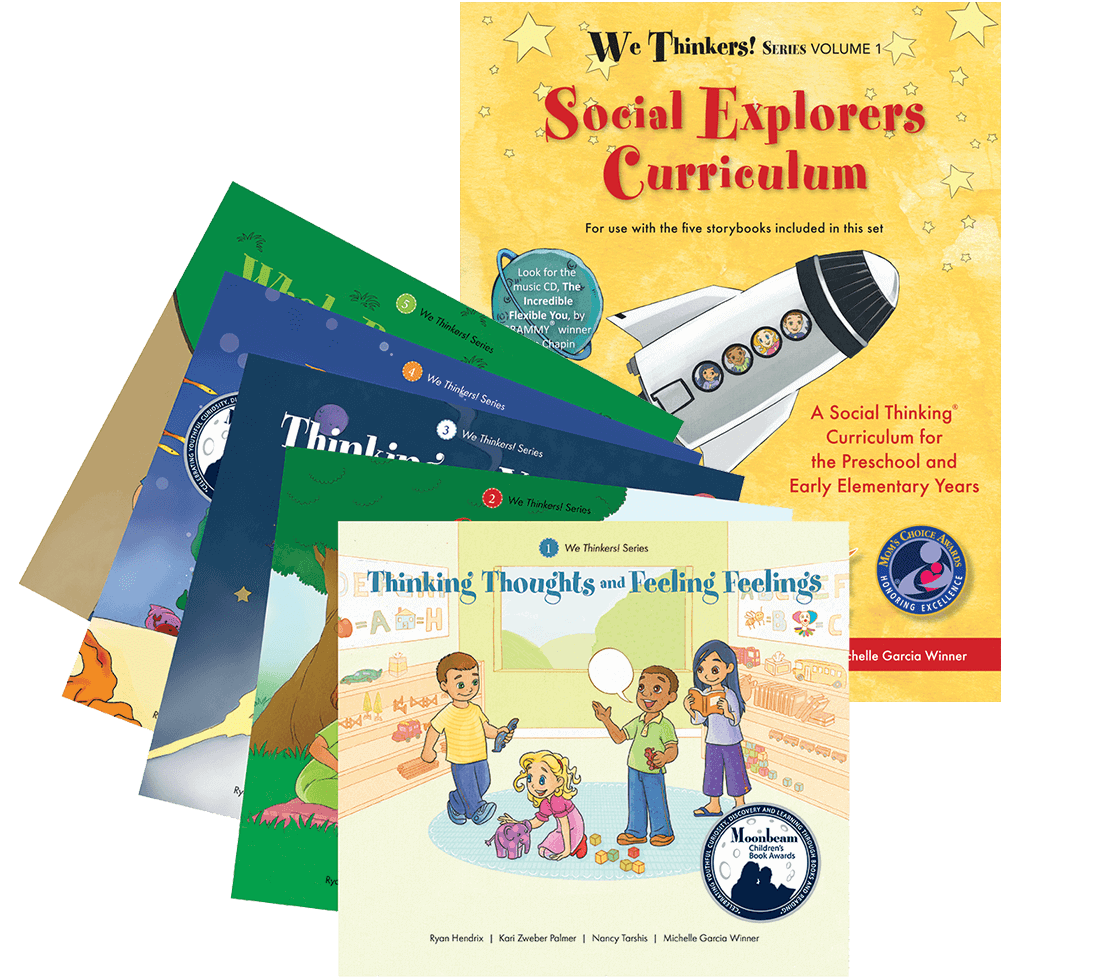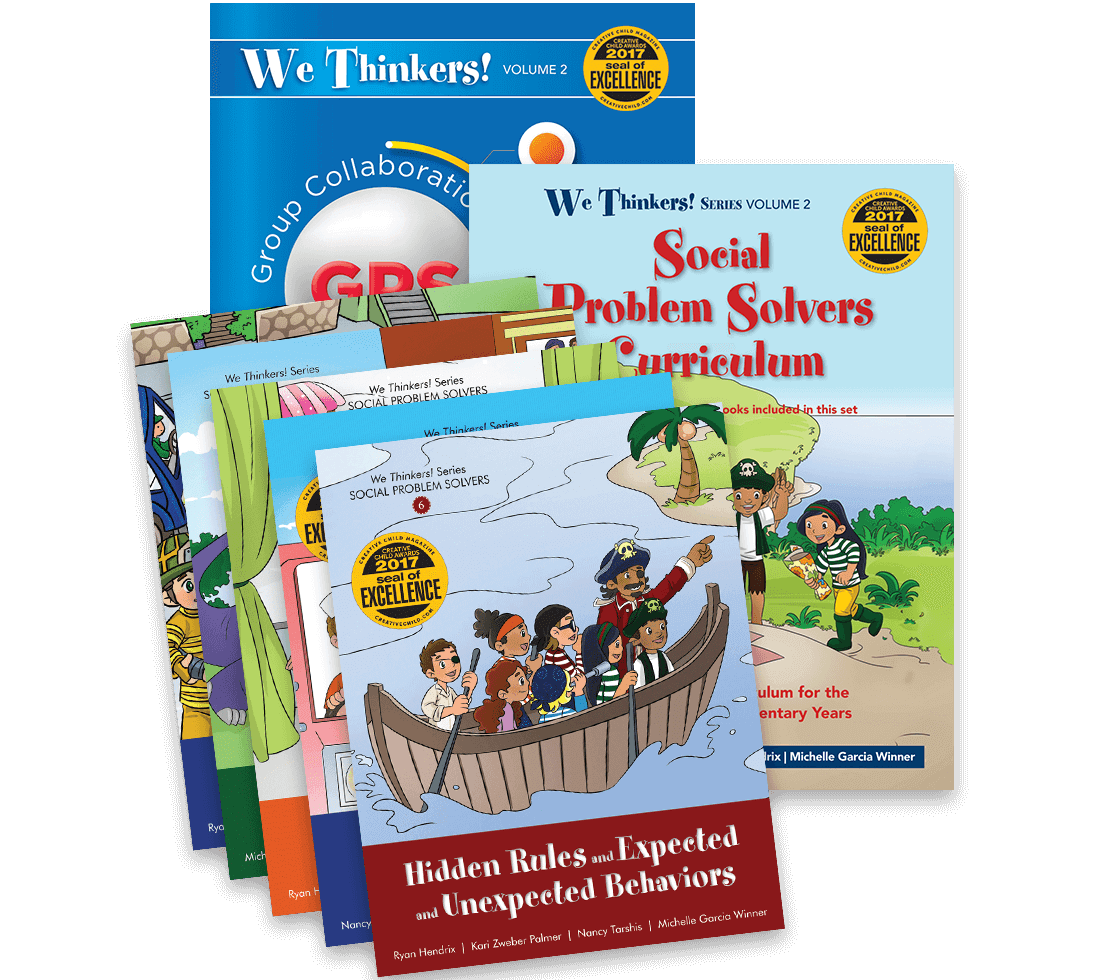
This course explores:
- The power of thinking and feeling out loud to learn about the social world
- Why learning and playing in a group can be challenging and how to help
- Fun activities and practical strategies to support the development of the social mind and self-regulation in early learners
Almost 2 hours of training. For any special accommodations or assistance with resources email us.
Social Thinking: Building the Social Mind in Early Childhood
On Demand Course for Parents & Caregivers
Detailed Description
Parents and caregivers are always asking about how to teach and support self-regulation. The reality is that self-regulation is lots of things! In this course we’ll talk about the ways the social mind can support social thinking and self-regulation for early learners. Whether you’re with your child at home, in the community or in their early learning settings, we’ll explore things you can say and do to build their social self-regulation.
- Learn how to use a favorite book to teach about and play with emotions, thoughts, and plans.
- Think and feel out loud, like a “social caster” to model and support attention, interpretation, and problem solving.
- Explore what everyone likes to think about to build awareness of the social world and help choose things you can do together.
- Talk about your “group plan” as part of everyday activities, like making a snack, to help children anticipate what will happen and support their self-regulation.
- Use a strategy, like “look, think, and do,” to help children notice the many plans happening around them.
- Make a plan for more successful and rich play.
- Act out stories to support attention and flexibility.
Learning Objectives & Agenda
Objectives
Participants will be able to:
- Identify two ways to support self-regulation (e.g., drawing attention to what is in the environment, thinking and feeling out loud, etc.).
- Describe how to use a storybook or everyday activity to talk about key concepts like thoughts, feelings, and plans.
Agenda
22 minutes – What is Social Thinking? (Methodology)
1 hour and 30 minutes – Teaching How the Social World Works, Summary – Building the Social Mind
Technical requirements to participate in online training
Streaming compatible browser
The best browser for streaming is Google Chrome. If you are unable to use Chrome, please make sure the version of your browser is the latest and greatest.
Download ChromeHigh-speed internet connection
Make sure you are accessing the online course on a device that is connected to high speed internet—that means your download speed is at least 25Mbps.
Run Internet Speed TestOpen firewall ports
If you are accessing the online course from your school or organization, ask your network administrator if there are any firewall ports that need to be opened.
Learn More









